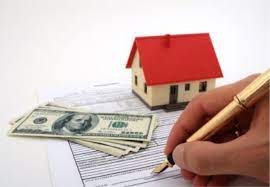During the home purchase process, lenders often create an escrow account to keep funds that will be necessary to pay unavoidable bills like property taxes, private mortgage insurance, and property insurance to ensure that payment of these bills is in effect. However, situations could come up where the borrower has a negative balance. In this situation, the servicer disburses funds and gets them back from the borrower later on. This article covers escrow advance, escrow refund, and escrow advance recovery
Overview
Escrow accounts are an important part of purchasing a house. You will need to maintain an escrow account with your mortgage company or lender during the period of purchasing.
Escrow accounts can be a bit confusing at times seeing that there are two accounts that come into sight when the term escrow comes up.
The first is where your earnest money (money before closing a house) goes to show your seriousness for the property. The second is the one set up by your mortgage lender to enable you to pay bills as quickly as possible when it is required after the closing of a property. These help to protect your property from property issues as well as protect both you the borrower and the lender. You will have to pay money into this account regularly. Your mortgage company will use it to help make payments of those bills for you.
A situation could however happen when the borrower’s escrow account is short in funds or has a negative balance and payment is due. In such a case, the servicer disburses funds into the borrower’s account and later recovers it as an escrow shortage or deficiency.
What Is An Escrow Account?
Understanding escrow advance will require you to understand that there’s such a thing as an escrow account.
The term Escrow refers to a third-party keeping an item and responding to it upon meeting specific criteria. This goes on to say that the bank acts as a third-party holder of your funds; paying your bills as it comes due.
As we already pointed out, escrow has two kinds of accounts. These accounts are basically where your servicer secures funds at a closing process and at the end of closing. Essentially, an escrow account is a convenient way to manage your taxes and insurance premiums.
Escrow accounts are overseen by the Real Estate Settlement Procedures Act (RESPA), which was enacted by Congress in 1974. The law enables the mortgage company to keep a fraction of your payments for property taxes and homeowner’s insurance. It also allows the corporation to store up to two months’ worth of extra escrow payments as a support plan to ensure that bills are not late.
Now that you understand what an escrow account is, let’s delve into the heart of the matter
What Is an Escrow Advance?
An escrow advance is a payment for escrow expenses made with servicer funds when the borrower’s escrow account has insufficient funds. This will be recovered as an escrow shortage or deficiency from the borrower. When escrow disbursements result in a negative escrow balance, an escrow advance occurs.
What is an Escrow Advance Refund?
You will get reimbursement for any remaining balances in your escrow account when you have surplus funds in your account.
Furthermore, because of RESPA, an escrow refund may not be available unless the remaining balance is at least $50. The loan servicer has the option to repay excess monies if the escrow account has a surplus of less than $50 at the time of the yearly escrow account analysis. However, the loan servicer may decide to allocate the surplus to the following year’s escrow payments.
If after paying off your loan, there is a surplus in your escrow account, you will have a right to an escrow refund, regardless of the amount.
What Is An Escrow Balance Refund?
A check for the total remaining balance in your escrow account is known as an escrow balance refund. This is essentially an escrow refund, however instead of receiving a percentage of the sum, you will receive the entire balance in your account.
If you’ve paid off your loan but still have a balance in your escrow account, this action may apply.
When Does Escrow Refund Happen?
Escrow refunds can happen in a number of ways. Although the specifics will vary depending on your situation, there are a few situations in which you may be eligible for an escrow refund.
- If you pay off a mortgage entirely. If your escrow account has a balance after you pay off your mortgage, you will be qualifying for an escrow refund. After you pay off your mortgage in full, servicers will return the remaining balance to your escrow account within 20 days.
- Reduced tax bills. Tax bills can fluctuate from year to year. There’s a possibility you’ll get an escrow refund if you get a reduction in your property tax bill.
- You are eligible for an escrow refund if you are able to transfer your homeowner’s insurance for a lower cost.
- You may be eligible for an escrow refund if you made a bigger necessary upfront payment at closing.
What are Escrow Refund Checks?
The number of surplus funds in your escrow account will reflect in an escrow refund cheque.
If you qualify for an escrow refund, the loan servicer will most likely send you a check after doing the necessary annual escrow account assessment. Loan servicers check that your escrow payments measure up with the bills paid out of this account during this evaluation. This can happen at any time of year.
Escrow Advance Recovery
Escrow advance recovery and escrow advance have the same meaning since both terms have to do with the recovery of funds from a borrower. If you already understood what escrow advance is, then you already understand escrow advance recovery.
Difference Between Escrow Advance and Escrow Shortage
An escrow advance represents the extra money paid for the borrower by the servicer peradventure there are incomplete funds in the escrow account to meet the whole payment of an escrow account bill that is due. While escrow deficit means your escrow account is insufficient to cover all of your property tax and insurance bills.
How Do I Avoid Escrow Shortage?
Keeping an eye on your property tax assessment and homeowner’s insurance will help you avoid escrow shortages and/or deficiencies. The sooner you detect an increase, the less likely you are to experience a shortage or shortfall.
What if I Don’t Have Enough Money in My Escrow Account?
If you don’t have enough money in your account, your lender may use his or her own funds to cover your property or insurance dues. In such conditions, that would be an example of a deficit account. You will also have the liberty to pay from 2-12 months if the money exceeds a month’s escrow payments.
Conclusion
Finally, maintain track of your financial evaluations and home insurance policy to ensure you don’t have escrow advance. Then stay in touch with your mortgage lender at all times. If you have an excess after paying your bills, you will most likely receive a refund as long as the leftover funds are up to $50 and your servicer does not move it to the next payment.
FAQs
What should I do with my escrow refund check?
Your insurance refund should be sent into your escrow account as soon as possible. Your escrow account is used by your mortgage servicer to set aside funds for both your homeowner’s insurance and property taxes.
What is an escrow balance refund?
A check for the total remaining balance in your escrow account is known as an escrow balance refund.
What is escrow shortage?
This indicates that your escrow account does not have enough funds to cover all of your property tax and insurance bills.
What is an escrow adance?
An escrow advance is simply a payment for escrow expenses made with servicer funds when the borrower’s escrow account has insufficient funds.






